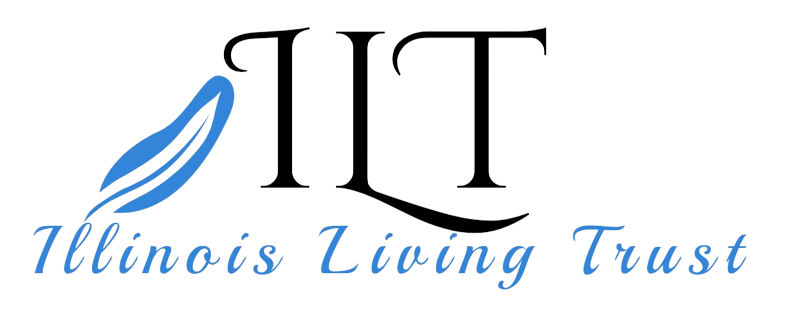INSTRUCTIONS FOR SUCCESSOR TRUSTEE
AT DEATH
This Checklist is intended to provide a general list of the steps that are required to administer a Living Trust after the death of the Trustor. It is not a comprehensive list and may not include all the steps needed to administer a living trust under the laws of the state in which the Trustor resided upon death. As a Successor Trustee, you may be held liable for failure to properly administer the trust per applicable state laws and the terms of the Living Trust. Consult an attorney licensed in the state where the Trust will be administered to ensure you complete all actions necessary to properly administer the Living Trust.
- Inform the family of your position as Trustee and assist them as needed; (funeral arrangements, flowers, notify friends, relatives, employer, etc.);
- Provide copies of the Trust document to all beneficiaries; (Only the beneficiaries are entitled to a copy or disclosure of Trust) (Be sure that you include any current amendment to the Trust);
- Keep all Successor Trustees fully informed throughout the process;
- Order at least 12 certified copies of the death certificate. The funeral home can usually order them;
- Notify an attorney if the Trustor resided in Illinois at the time of death, so that they can answer any questions for you or the beneficiaries or provide assistance with the administration of the Trust. Request attorney’s advice if any sub-trust exists ( Children’s, Special Needs, Pet, AB, Gun Trusts, etc).
Tuohy Law Offices 312-559-8400,
info@tuohylawoffices.com
www.tuohylawoffices.com
- Contact an accountant for preparation of final income tax return and estate tax returns and for getting a FEIN # if a sub-trust exists.
- Notify all banks so you can begin writing checks as the Successor Trustee. Each bank will require a death certificate, a copy of the Certificate of Trust or complete Trust document, and personal identification from the Successor Trustee.
- Pay all bills, debts, and taxes and keep receipts of all expenses paid;
- Inventory, and secure all personal property. Obtain written appraisal, if necessary;
- Obtain legal advice for property sales, rental property, or business interests;
- Collect any debts owed to Trustor;
- Notify the following, if applicable:
- Social Security Administration;
- Life insurance companies;
- Pension;
- Investment and other financial institutions;
- Deferred compensation or additional retirement funds;
- Union and employer representatives and Veterans Administration;
- Other organizations that may provide death benefits (see inventory at the end of the Estate Planning documents and review all relevant papers in the home);
- File the original Will in the Circuit Court Probate Division of the Trustors home County and obtain a Certified Copy for your records.
- Determine if any assets in the decedent’s name have a collective value that exceeds the probate limit ($100,000.00 in Illinois).
- If the value of the collective assets exceeds the Probate limit, open a Probate Estate.
- If the value of the collective assets is under the Probate limit, obtain a Small Estates Affidavit for the appropriate asset transfers to the Trust.
- Prepare any property sales. Obtain legal advice on rental or other businesses. ▪ Distribute personal property and gifts, hold estate sale if necessary;
- Firearms. Consult an attorney in the resident state for current local and federal laws. In general:
- Chosen beneficiaries must have a valid FOID card in the state in which they reside. A 60-day grace period applies to obtain the FOID card. The grace period does not apply to the Trustee/Executor, so transfers must be timely.
- If there is no named beneficiary for firearms, the beneficiary has no valid FOID card, cannot obtain a FOID card, or he/she rejects the gift: A timely transfer/sale of the firearm must be made to a licensed gun dealer.
- The Trustee must keep a record of the transfer for a minimum of ten years, and the document must include; date of the transfer, name, and address of the transferee, the serial number of the firearm, and a description of the firearm.
- Prepare a final accounting record of all assets received and bills paid and give a copy to each beneficiary, along with final distributions according to Trust. Obtain receipts from each beneficiary;
- Secure and prepare long-term administration for any sub-trusts (Children’s, Special Instructions, Special Needs, AB, Pet, Gun, act). Notify all Successor Trustees.
AT PHYSICAL OR MENTAL INCAPACITY
- Check the provisions of the Trust for specific instructions;
- Have the attending or family physician write a letter documenting the person’s condition/incapacity;
- Notify an attorney if the Trustor resided in Illinois at the time of death, so that they can answer any questions for you or the beneficiaries or provide assistance with the administration of the Trust
Tuohy Law Offices 312-559-8400,
info@tuohylawoffices.com
www.tuohylawoffices.com
- Take the required steps by law to remove any firearms from the possession and control of the disabled person;
- Inventory and secure any personal property;
- Arrange for the maintenance of any real estate;
- Transact any necessary business for the incapacitated person;
- Apply for disability benefits;
- .
Receive and deposit funds in Trust accounts; - Pay all bills on time and keep receipts for all expenses paid;
- Keep a ledger of bills paid and any income received;
- Keep all Successor Trustees fully informed at all times.
- How to sign for Trustee as Power of Attorney: [Principal’s Name] by: [Your Name] Power of Attorney, Attorney-Fact



